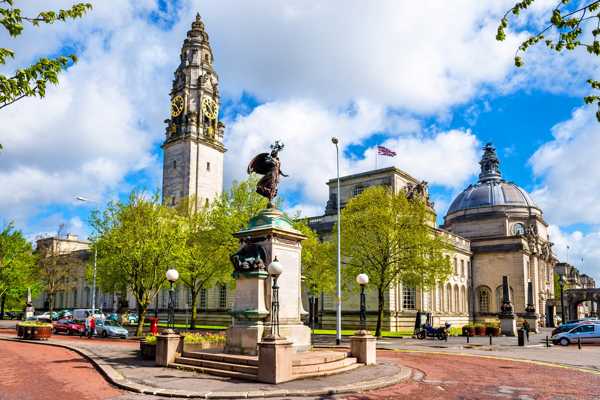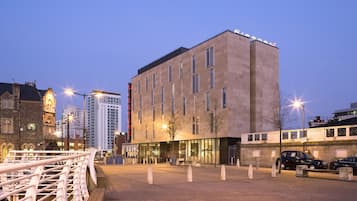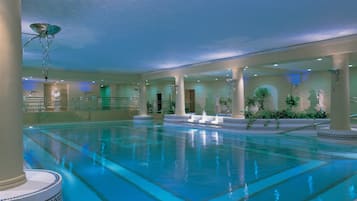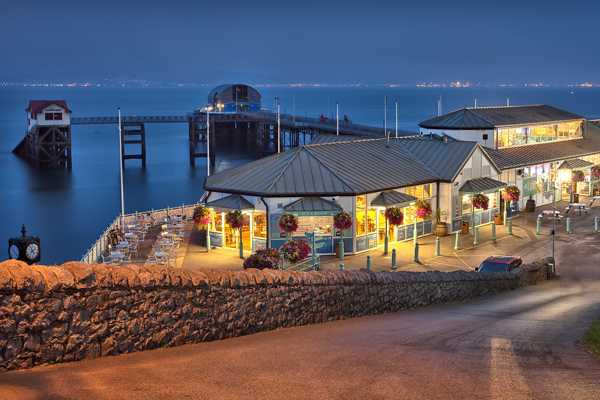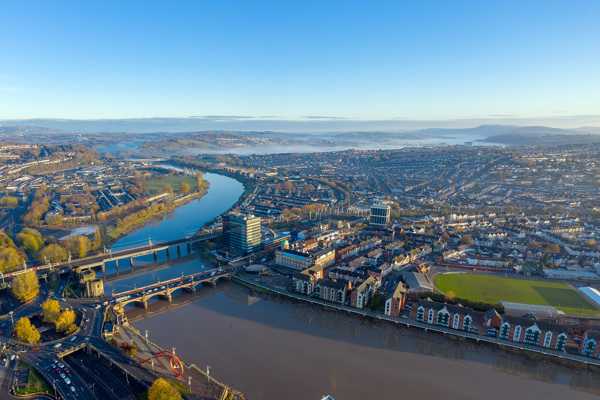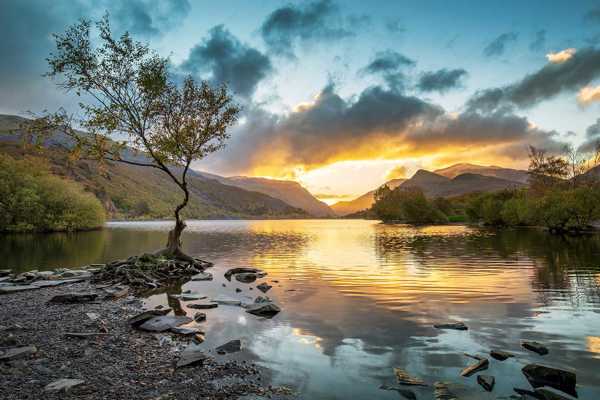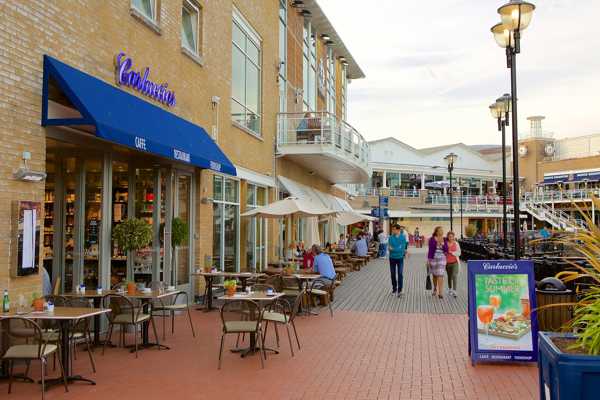Wales might be small, but it sure does pack a punch on the nature front. Rolling from the cliff-backed sands of the Gower in the south to the mist-gathering peaks of Snowdonia in the north, it's an ancient place carved by mountains and beset by wild waves.
A series of wonderful national parks, along with the only truly coastal national park in the UK, contain a huge range of activities, and you'll find natural wonders that range from beaches to mountain summits. This guide offers up the best natural wonders in Wales, including salty lagoons and stunning mountain ranges.
- 1
Snowdon
Hit the roof of Wales

- Aventure
- Photographie
Snowdon should feature on every list of Wales's great natural wonders. It's the highest peak in the country, topping out at a cloud-busting 1,085 metres up. You'll find it crowning the sublime landscapes of the Snowdonia National Park, towering above the 2 quaint Celtic villages of Beddgelert and Rhyd-Ddu.
There are a few routes that can take you to the top. The easiest is the wide, slate-topped Llanberis Path. The hardest is surely the heart-thumping ridge scramble over knife-edge Crib Goch. Feeling lazy? Just take the Snowdon Mountain Railway. It's a vintage rack and pinion line that can whisk you all the way to the summit without a hiking pole in sight.
Carte - 2
Skomer Island
Meet puffins and porpoises in Pembrokeshire

- Familles
- Photographie
Salty Skomer Island is a fragment of rugged rocks that sits just a stone's throw off the gorgeous Pembrokeshire coastline. You can come to see it rising from St. George's Channel on the headlands of Deer Park. Or you can hop on a boat tour and get up close and personal, to catch glimpses of proud puffins and basking seals on the shoreline of the isle.
During the summer, only 250 people can land on Skomer each day. Others will stay on the water and look for shearwaters, gannets, porpoises, and dolphins from the waves. Things are particularly spectacular in the spring when groups of daffodils sway on Skomer's breezy clifftops.
Carte - 3
Three Cliffs Bay
Pure drama on the Gower coast

- Économique
- Photographie
Three Cliffs Bay is one of the most photographed beaches in all of Wales – and the United Kingdom. Cutting into the southern coast of the Gower Peninsular a little over 20 minutes' drive from the city of Swansea, it's a place you have to visit to believe.
Park up at Pennard or the Penmaen Farm and take to the headland trails. They'll bring you to a wide cleft in the Welsh coast that opens onto a golden sweep of sand. Close to low tide you'll see a trio of twisted rock spires that give the beach its name. From there, a wiggling river winds under the cliffs to meet pockets of dunes and a small estuary and a ruined castle. It's picture-postcard stuff.
Carte - 4
Blue Lagoon
Watersports in an abandoned slate quarry

- Aventure
- Économique
- Photographie
The Blue Lagoon is the new name for a Welsh slate quarry that was abandoned in the early 1900s. Chiselled straight out of the dark-hued cliffs around the bend from pretty Abereiddi Beach, it's now filled with clear, cobalt ocean waters.
Said waters magnetise all sorts of sports lovers these days. SUP boarders bob through the open channel to explore the Pembroke coast when it's calm. Kayakers drift in to see the sheer-cut quarry walls. Coasteering groups challenge themselves on scrambling over the rocks. The view from the clifftop is also stunning, so you don't have to get wet to enjoy.
Carte - 5
The Fairy Glen
Meet the forest sprites and faeries

- Économique
- Photographie
The Fairy Glen – or Ffos Anoddun, as the North Waleans would prefer to say – is a small gorge that shoots off the Conwy River as it rushes through the western edges of the Snowdonia National Park. Located off the A5, it's a fantastic pitstop as you drive southwards from the village of Betws-y-Coed.
You'll need to walk some steep steps cut into the rock walls to get to the glen itself. That's where you'll be immersed in Celtic folklore, which tells tales of forest sprites residing in the ferns and babbling brooks. Besides all that, it's a photographer's dream, with mossy boulders and gnarled overhanging trees.
Carte - 6
Worms Head
Cross only when the tide allows

- Économique
- Photographie
Worms Head is a pinnacle on the Gower Peninsula. It's a rugged rock that juts into the Atlantic Ocean a short walk from the village of Rhossili, around 40 minutes' drive from Swansea. If you've come to Wales for those famous snapshots of a natural coast, this one's certainly for you.
The Worm stretches a little over a mile from end to end. It's technically a tidal island, which means you can only explore when the water is sufficiently low. There's a dedicated lifeguard station by the start of the trail where you can check if it's safe. If it's possible, you'll cross a swathe of murky seaweed pools and climb a high cliff where seals are often the only company.
Carte - 7
Pen y Fan
Challenge yourself on South Wales's highest peak

- Aventure
- Économique
- Photographie
Pen y Fan has the proud distinction of being the highest mountain in South Wales. The upshot is that it's a whole load more accessible than the peaks in Snowdonia. In fact, the trailheads for the peak are just over an hour's drive from both Swansea and the capital, Cardiff.
Talking of trails, there are loads of routes up the mountain. The most popular is surely the so-called Storey Arms path, or perhaps the slightly steeper Pont ar Daf route. Seasoned hikers might prefer to check off the peak as part of the Beacons Circuit, which weaves past other mountains in the vicinity, like rugged Cribyn and the grassy tops of Corn Du.
Carte - 8
Elegug Stacks
Chiselled by the waves on the Welsh coast

- Économique
- Photographie
The Elegug Stacks are needles of hardy Welsh stone that lurch straight out of the water on the edge of the Pembrokeshire Coast National Park. They're in a particularly remote part of the shoreline of West Wales, but still only around 6 miles to the southwest of the popular caravanning bay of Freshwater East.
The path to the rocks themselves runs right through an army base, so you'll need to check ahead to see if it's open. If so, head on down and prepare to be wowed by a huge natural rock arch and a speckling of big stacks, which churn up the waves like a natural Jacuzzi bath.
Carte - 9
Dan yr Ogof
Delve into the longest cave system in the country

- Aventure
- Économique
- Photographie
Dan yr Ogof is the name for the largest cave complex in all of Wales, and, some say, the entire UK. It's managed and run by the National Showcaves Centre for Wales, which you'll find right off the A406, about 40 minutes' drive into the valleys north of Swansea.
You’re invited to explore the first section of a deep cavern that runs at least 10 miles under the foothills of the Brecon Beacon mountains. Within are some seriously strange stalactites and mineral formations, with names like the Rasher of Bacon and the Alabaster Pillar. Little ones are also sure to enjoy the dinosaur exhibit that awaits outside.
Emplacement : National Showcaves Centre for Wales, Abercraf, Swansea SA9 1GJ, Wales, UK
Ouverture : April–November: daily from 10 am to 3 pm
Téléphone : +44 (0)1639 730284
Carte - 10
Glyder Fawr
See the knives of the Devil's Kitchen

- Aventure
- Économique
- Photographie
Glyder Fawr is a great peak that crumples the landscapes of North Wales close to Snowdonia National Park. It's the tallest in the Glyderau range, which spans the northern part of the reserve, going all the way from Capel Curig to the coast.
Generally speaking, Glyder Fawr is considered a more challenging climb than larger Snowdon. Some will don helmets to conquer the scrambling path over from Tryfan. Others come up the bucolic Pen-y-Pass valley to see mountain lakes and high bluffs of stone emerge overhead. Either way, the summit offers a strange and daunting showing of jagged rocks known as the Devil’s Kitchen.
Carte



